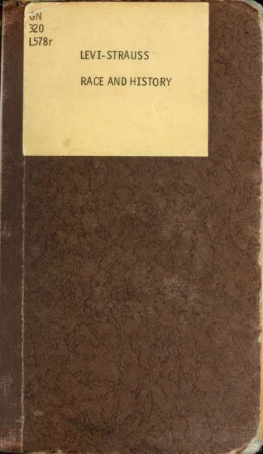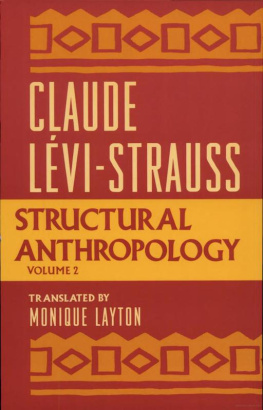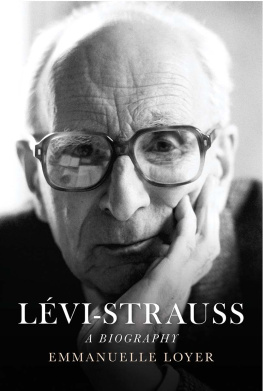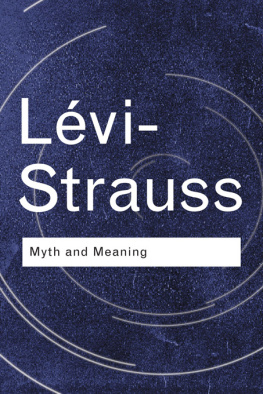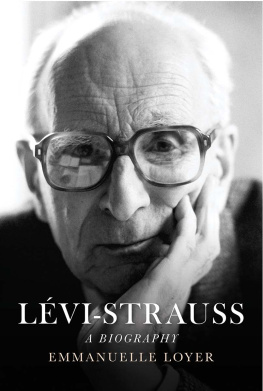Levi-Strauss Claude - Race and History
Here you can read online Levi-Strauss Claude - Race and History full text of the book (entire story) in english for free. Download pdf and epub, get meaning, cover and reviews about this ebook. genre: History. Description of the work, (preface) as well as reviews are available. Best literature library LitArk.com created for fans of good reading and offers a wide selection of genres:
Romance novel
Science fiction
Adventure
Detective
Science
History
Home and family
Prose
Art
Politics
Computer
Non-fiction
Religion
Business
Children
Humor
Choose a favorite category and find really read worthwhile books. Enjoy immersion in the world of imagination, feel the emotions of the characters or learn something new for yourself, make an fascinating discovery.
- Book:Race and History
- Author:
- Genre:
- Rating:5 / 5
- Favourites:Add to favourites
- Your mark:
- 100
- 1
- 2
- 3
- 4
- 5
Race and History: summary, description and annotation
We offer to read an annotation, description, summary or preface (depends on what the author of the book "Race and History" wrote himself). If you haven't found the necessary information about the book — write in the comments, we will try to find it.
Race and History — read online for free the complete book (whole text) full work
Below is the text of the book, divided by pages. System saving the place of the last page read, allows you to conveniently read the book "Race and History" online for free, without having to search again every time where you left off. Put a bookmark, and you can go to the page where you finished reading at any time.
Font size:
Interval:
Bookmark:

This book made available by the Internet Archive.






I. RACE AND CULTURE
It may seem somewhat surprising, in a series of booklets intended to combat racial prejudice, to speak of the contributions made by various races of men to world civilization. It vs^ould be a waste of time to devote so much talent and effort to demonstrating that, in the present state of scientific knowledge, there is no justification for asserting that any one race is intellectually superior or inferior to another, if we were, in the end, indirectly to countenance the concept of race by seeming to show that the great ethnic groups constituting human kind as a whole have, as such, made their own peculiar contributions to the common heritage.
Nothing could be further from our intentions, for such a course of action would simply result in an inversion of the racist doctrine. To attribute special psychological characteristics to the biological races, with a positive definition, is as great a departure from scientific truth as to do so with a negative definition. It must not be forgotten that Gobineau, whose work was the progenitor of racist theories, regarded "the inequality of the human races" as qualitative, not quantitative; in his view, the great primary races of early man the white, the yellow and the blackdiffered in their special aptitudes rather than in their absolute value. Degeneration resulted from miscegenation, rather than from the relative position of individual races in a common scale of values; it was therefore the fate in store for all mankind, since all mankind, irrespective of race, was bound to exhibit an increasing intermixture of blood. The original sin of anthropology, however, consists in its confusion of the idea of race, in the purely biological sense (assuming that there is any factual basis for the idea, even in this limited fieldwhich is disputed by modern genetics), with the sociological and psychological productions of human civilizations. Once he had made this mistake, Gobineau was inevitably committed to the path leading from an honest intellectual error to the unintentional justification of all forms of discrimination and exploitation.
When, therefore, in this paper, we speak of the contributions of different races of men to civilization, we do not mean that the cultural contributions of Asia or Europe, Africa or America are in any way distinctive because these continents are, generally speaking, inhabited by peoples of different racial stocks. If their contributions are distinctive and there can be little doubt that they arethe fact is to be accounted for by geographical, historical and sociological circumstances, not by special aptitudes inherent in the anatomical or physiological make-up of the black, yellow or white man. It seemed to us, however, that the very effort made in this series of booklets to prove this negative side of the argument, involved a risk of pushing into the background another very important aspect of the life of manthe fact that the development of human life is not everywhere the same but rather takes form in an extraordinary diversity of societies and civilizations. This intellectual, aesthetic and sociological diversity is in no way the outcome of the biological differences, in certain observable features, between different groups of men; it is simply a parallel phenomenon in a different sphere. But, at the same time, we must note two important respects in which there is a sharp distinction. Firstly, the order of magnitude is different. There are many more human cultures than human races, since the first are to be counted in thousands and the second in single units; two cultures developed by men of the same race may differ as much as, or more than, two cultures associated with groups of entirely different racial origin. Secondly, in contrast to the diversity of races, where interest is confined to their historical origin or their distribution over the face of the world, the diversity of cultures gives rise to many problems; it may be wondered whether it is an advantage or a disadvantage for human kind, and there are naturally many subsidiary questions to be considered under this general head.
Last and most important, the nature of the diversity must be investigated even at the risk of allowing the racial prejudices whose biological foundation has so lately been destroyed to develop again on new grounds. It would be useless to argue the man in the street out of attaching an intellectual or moral significance to the fact of having a black or white skin, straight or frizzy hair, unless we had an answer to another question which, as experience proves he will immediately ask: if there are no innate racial aptitudes, how can we explain the fact that the white man's civilization has made the tre
mendous advances with which we are all familiar while the civilizations of the coloured peoples have lagged behind, some of them having come only half way along the road, and others being still thousands or tens of thousands of years behind the times? We cannot therefore claim to have formulated a convincing denial of the inequality of the human races, so long as we fail to consider the problem of the inequalityor diversityof human cultures, which is in facthowever unjustifiablyclosely associated with it in the public mind.
If wc are lo understand how, and to what extent, the various human cultures differ from one another, and whether these differences confhct or cancel one another out or, on the contrary, are all instrumental in forming a harmonious whole, the first thing to do is to draw up a list of them. But here we immediately run into difficulties, for we are forced to recognize that human cultures do not all differ from one another in the same way or on the same level. Firstly, we have societies co-existing in space, some close together and some far apart but, on the whole, contemporary with one another. Secondly, we have social systems that have followed one another in time, of which we can have no knowledge by direct experience. Anyone can become an ethnographer and go out to share the life of a particular society which interests him. But not even the historian or archeologist can have any personal contact with a vanished civilization; all his knowledge must be gleaned from the writings or the monuments which it or other societies have left behind. Nor must we forget that those contemporary societies which have no know-, legde of writing, like those wich we call "savage" or "primitive", were preceded by other forms of society of which we can learn nothing, even indirectly. If we are honest in drawing up our list, we shall have, in such cases, to leave blank spaces, which will probably be far more numerous than the spaces in which we feel we can make some entry. The first thing to be noted is therefore that, in fact in the present, as well as in fact and in the very nature of things in the past, the diversity of human cultures is much greater and richer than we can ever hope to appreciate to the full.
Font size:
Interval:
Bookmark:
Similar books «Race and History»
Look at similar books to Race and History. We have selected literature similar in name and meaning in the hope of providing readers with more options to find new, interesting, not yet read works.
Discussion, reviews of the book Race and History and just readers' own opinions. Leave your comments, write what you think about the work, its meaning or the main characters. Specify what exactly you liked and what you didn't like, and why you think so.

